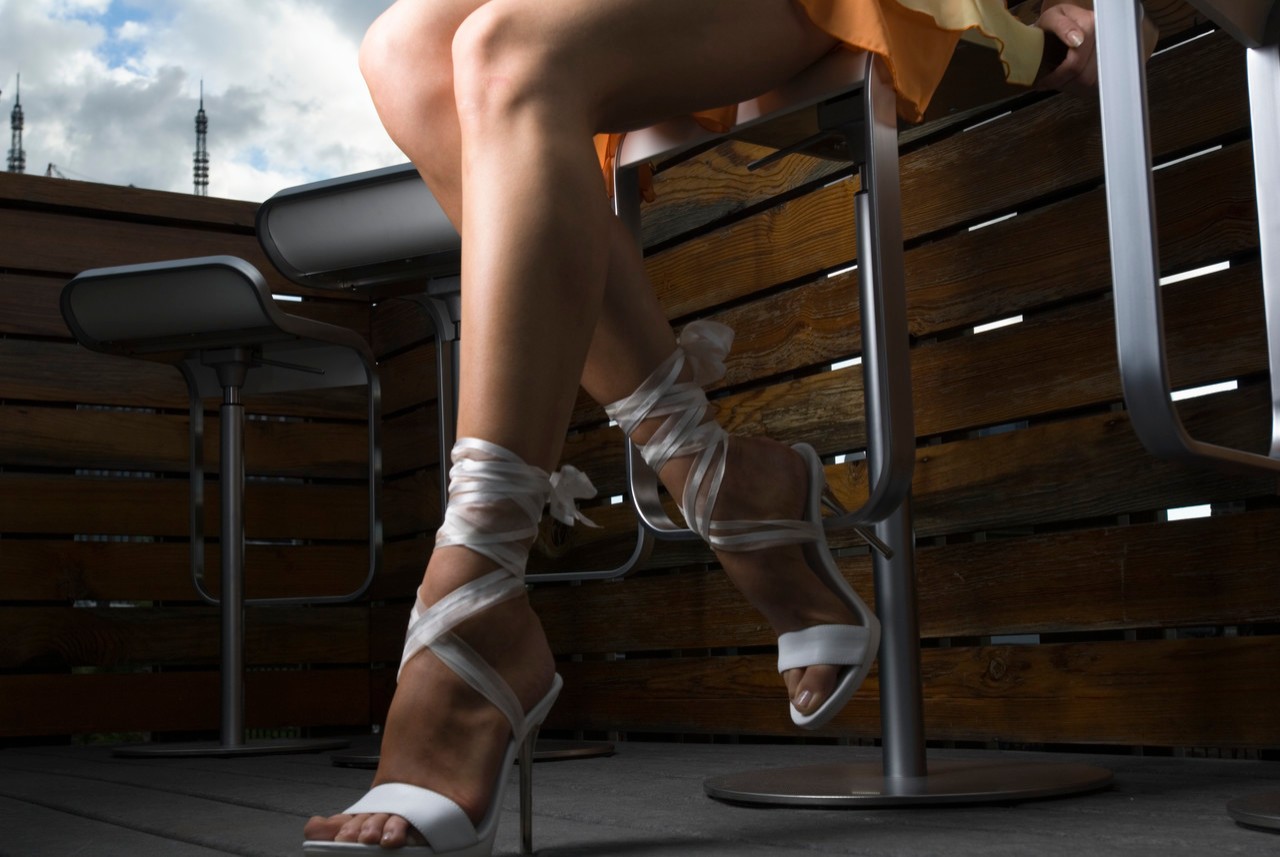Are High Heels Dangerous?

If you wear stiletos — or even just pumps or wedges — you could be risking injuries from falls and chronic pain in your knees. Here's what you should know.
High heels, whether stilettos, wedges, or pumps, have been fashionable for decades. Many women don’t feel dressed for work if they aren’t wearing high heels with their office outfit.
Dressing up for a special event also tends to require the extra effort involved in heels.
While high heels add inches to height and, some think, make legs look longer, sleeker, and sexier, the eventual result of wearing these shoes much of the time may not be a pretty picture. In fact, high heels can put your health in danger. The unnatural position produces a chain reaction that travels up your leg as far as your spine.
YOU MIGHT ALSO LIKE: How to Prevent Arthritis
Danielle Barkema, a researcher at medical engineering firm Boston Scientific, had 15 volunteers walk on a platform while wearing shoes with different heel heights — flats and two-inch- and 3.5-inch-tall heels.
Using sensors, cameras, and other high-tech lab equipment, Barkema documented how walking in elevated heels produced a shock wave that moved from the heel up the leg, causing pressure on the inside of the knees.
Barkema also found wearing heels, especially those two inches and higher, altered body posture, changing joint positions at the knees, hips, ankles, and trunk — changes that could eventually cause painful osteoarthritis, which occurs when the protective cartilage on bones wears down over time.
“Wearing high heels puts individuals at greater risk for developing osteoarthritis. And it seems to be that the higher the heel height, the greater the risk,” Barkema said.
It’s not uncommon for women who are wearing heels to run sometimes, perhaps to catch a bus or get out of the rain. You’re risking a sprained ankle when you sprint in high heels, and you are also raising the risk for knee problems later in life, according to a study from Ningbo University in Zhejiang, China. The pressure on your knees may lead to osteoarthritis.
Researchers at Hanseo University in South Korea examined how regularly wearing shoes with almost 4-inch-tall heels affected 40 young women. The research subjects were required to wear the high heels over the course of four years as part of their training to become airline attendants.
The women’s ankle strength was measured using computerized exercise machines, and their balance was assessed with a wobble board. The results, at first glance, showed wearing high heels had positive effects.
Sophomores and juniors who had been wearing high heels for two or three years had greater strength in their ankle muscles than the freshmen women, who were generally new to wearing high heels frequently.
Exercise physiologist Jee Yong-Seok, PhD, who headed the study, concluded ankles were strengthened over the course of wearing high heels for a year or two because the ankle muscles adapted to the stresses of wearing high heels.
But when the research team looked at the young women who were seniors and had worn high heels the longest, they found a surprise. The muscles on the sides, front, and back of these research participants’ ankles were out of balance. The result was ankle instability and weakness.
In addition, all the senior women who had worn high heels the longest had worse balance than even the freshmen. Eventually, the researchers warned, these ankle changes could lead to falls and serious ankle sprains.
All this bad news about the dangers of wearing high heels doesn’t mean you can never wear them. The take-away message is don’t wear high heels daily and avoid running in them.
It’s also important to do preventive exercises to keep ankles strong and flexible. To that end, Jee recommends regular ankle strengthening exercises, such as heel walking, tapping your toes on the floor, and raising your heels.
It's also a good idea to invest in walking shoes that are good for you. Some recommended candidates include styles from Asics, Tiosebon, New Balance, Ryka, and Brooks.
Updated:
November 21, 2022
Reviewed By:
Christopher Nystuen, MD, MBA and Janet O'Dell, RN